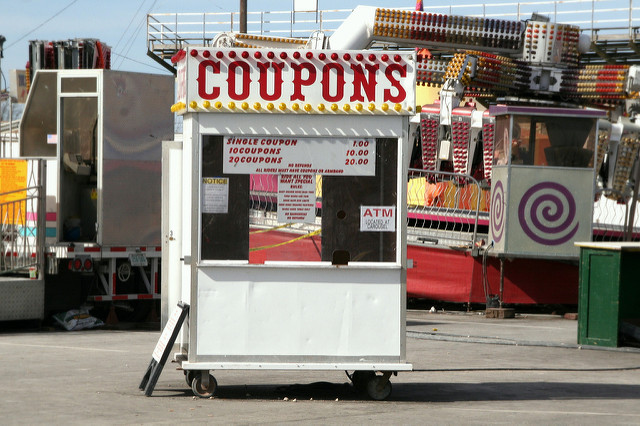Pharma has many tools for generating big profits. Drug coupons, which cover the copay of a high-cost drug, are one such tool. For patients, drug coupons can make extremely high-cost drugs free. But drug coupons drive up overall health costs; they also may incent people to take drugs with unknown risks when other safe drugs are available.
Drug coupons can seem very attractive to patients. Coupons can make the out-of-pocket cost for a very high-priced drug lower than the patient’s cost for a low-cost drug. Patients need to keep in mind though that drug coupons tend to be for drugs that are new or relatively new to market. And, unless you’re in a situation where no other drug works for you, you should try to avoid taking newly approved drugs.
Newer drugs can cause serious side effects about which the doctor is unaware, since it’s hard to evaluate a drug’s potential for harm until it has been on the market for several years. That’s why, to be safe, it’s wise to take drugs that have been used for a long time, where the risks of harm are well understood.
Drug coupons are not only geared to get patients to take expensive drugs that have not been well-tested; they effectively undermine the value of a tiered copay system for drugs. The tiered copay system is designed to help keep insurance premiums down. It steers people to the lowest-priced drug in a category because it comes with the lowest copay.
When the doctor gives a patient a coupon for a drug in the highest copay tier, the tier becomes meaningless as the patient is not responsible for the copay. Pharmaceutical companies use coupons to keep patients away from competitor lower-cost drugs. Since the coupon covers the cost of the copay only, the drug companies still get paid a lot for the high-cost drug.
Federal health care programs forbid the use of drug coupons under the “anti-kickback statute.” So, Medicare does not allow them. But, the Government Accountability Office has found that pharmaceutical companies don’t always have systems in place to prevent the use of drug coupons by people with Medicare and that six percent of people with Medicare do use them.
Why do doctors prescribe a tier three drug when a lower-cost drug is available to treat a condition? In many cases, the doctors don’t know the price of the drug. In other cases, a pharmaceutical company has persuaded doctors that its drug is better than other drugs. Or, patients may ask for the drug because they’ve seen ads for it on TV.
Here’s more from Just Care:










